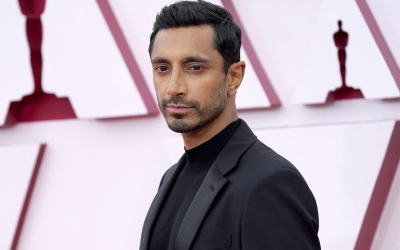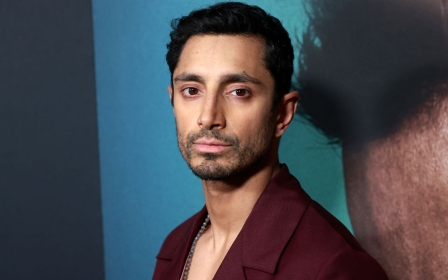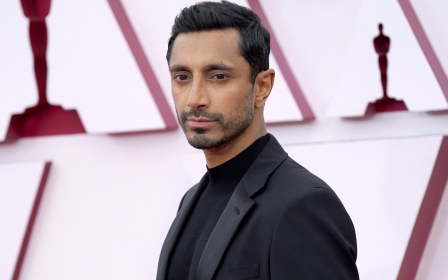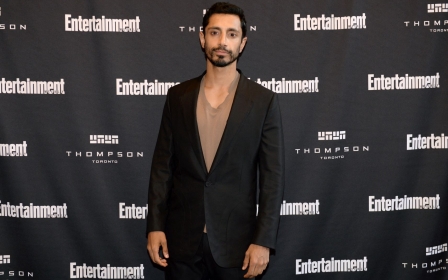Oscars 2022: Riz Ahmed's win another 'first' for Hollywood's Muslims
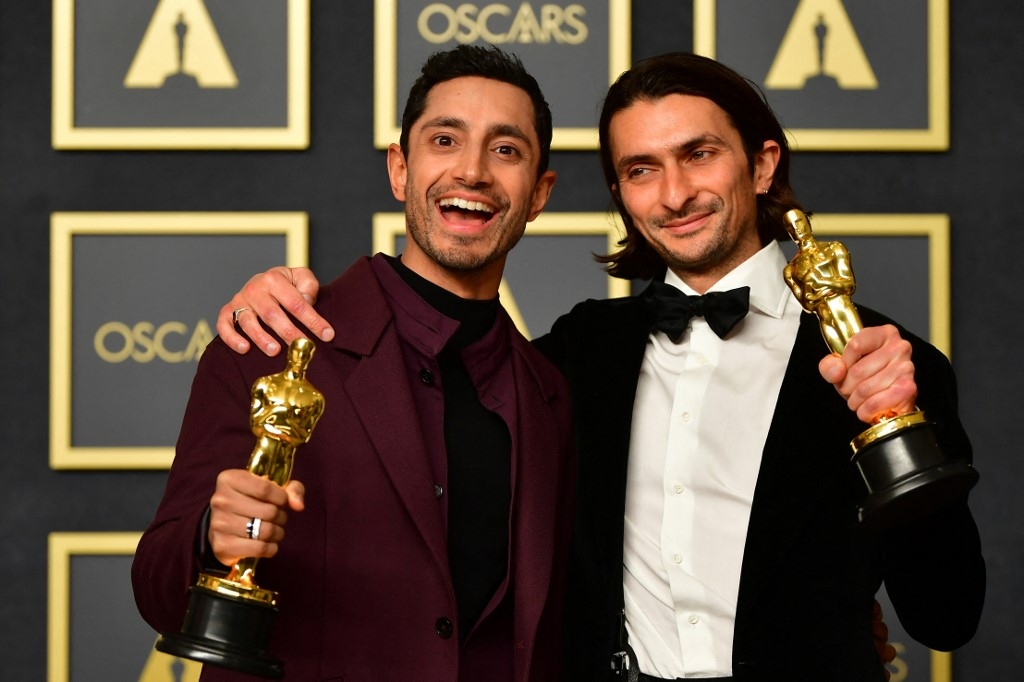
The British-Muslim actor and musician Riz Ahmed has won his first Oscar for best live action short film The Long Goodbye, which he starred in and co-wrote.
Ahmed made history last year after becoming the first Muslim to be nominated for the best actor Oscar for his role in The Sound of Metal, playing a hearing-impaired drummer.
New MEE newsletter: Jerusalem Dispatch
Sign up to get the latest insights and analysis on Israel-Palestine, alongside Turkey Unpacked and other MEE newsletters
The 39-year-old actor has notched up an impressive film career, including Four Lions, Nightcrawler, Rogue One and Venom.
In his acceptance speech, Ahmed spoke about the film, which touches on his identity as a British-Pakistani.
“In such divided times, we believe that the role of the story is to remind us there is no ‘us’ and ‘them’. There’s just ‘us’," he said.
“This is for everyone who feels like they don’t belong. Anyone who feels like they’re stuck in no man’s land. You’re not alone. We’ll meet you there. That’s where the future is. Peace.”
The Long Goodbye features music from Ahmed's 2021 album of the same name. The movie is about a South Asian family in a dystopian London, who deal with the appearance of an aggressive far-right militia.
Celebrated online
Ahmed’s win has been widely celebrated by fans as another breakthrough for people of colour and Muslims in the entertainment industry.
The win marks the first time a Muslim of South Asian descent has won the live action short section of the awards.
“We just had Riz Ahmed win the Academy Award for Live Action Short Film, the first Muslim to ever win that award, a historic moment,” one Twitter user wrote.
Another hailed Ahmed's win as a major success story, calling it a “win for South Asians worldwide”, adding they were “so proud to the point where tears are involved”.
Many others also praised the actor for the way the film sheds light on Islamophobia, with hundreds of people sharing images and quotes from Ahmed on their own accounts.
Landmark moment
For Muslims in Hollywood, Ahmed’s win is a major milestone and comes against the backdrop of decades of negative coverage in the entertainment industry.
According to studies, Muslims account for just 1.6 percent of 8,965 speaking characters across 200 popular films from the US, UK, Australia, and New Zealand released from 2017 through 2019.
Yet, Muslims accounted for 24 percent of the global population in 2015, according to Pew Research.
Ahmed has previously spoken about representation in the film industry and how this impacts the community.
“This failure of representation is experienced by Muslims as pain, physical pain, in terms of being attacked, in terms of countries being invaded, in terms of discriminatory legislation,” he said in an interview.
Last year, the star also condemned rampant underrepresentation and negative depictions of Muslims in cinema.
In a widely shared 13-minute long video, Ahmed says Muslims on screen are “either non-existent or entrenched in those stereotypical, toxic, two-dimensional portrayals”.
Speaking about his own experience in the industry, he added: “I don’t really want to be here now.
"I don’t want to be here giving these speeches… I want to be able to do what my white counterparts do. I want to be able to take a role, give interviews about the role and then in between roles, prepare for the next role.”
Ahmed has long been vocal about the experience of Muslims, being typecast as a terrorist and being stopped in airports based on his image.
The actor graduated from the University of Oxford in 2003 with a degree in Philosophy, Politics and Economics, and got his first break as an actor in the 2006 movie The Road to Guantanamo.
In the film, he plays one of a trio of British men of South Asian origin, who were arrested in Afghanistan by American forces after the US invasion and imprisoned in the Guantanamo Bay prison camp. It was a role that caught the attention of British security forces, who detained and questioned the actor under the Terror Act in 2006.
Ahmed says he was denied access to a lawyer by the authorities, who asked: "Did you become an actor mainly to do films like this, to publicise the struggles of Muslims?"
Middle East Eye delivers independent and unrivalled coverage and analysis of the Middle East, North Africa and beyond. To learn more about republishing this content and the associated fees, please fill out this form. More about MEE can be found here.


